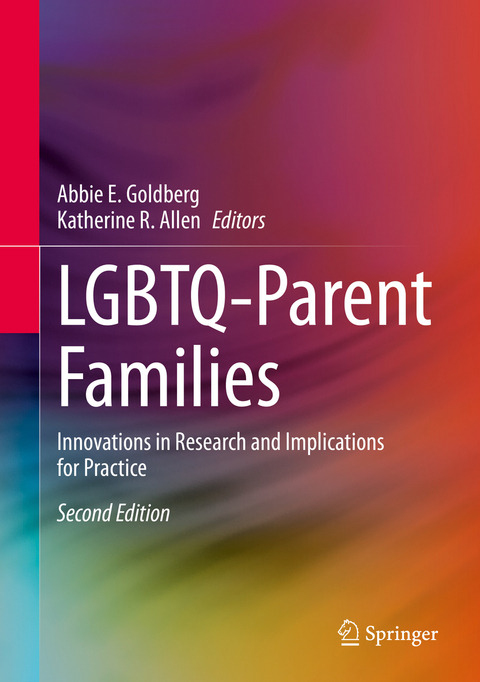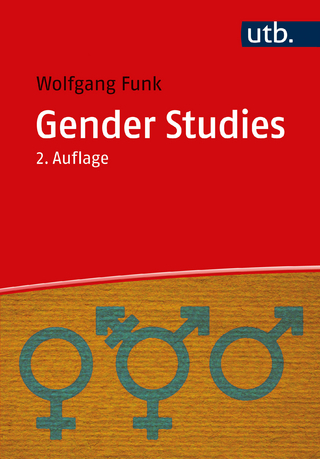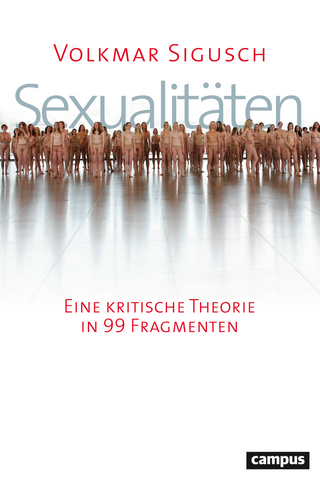
LGBTQ-Parent Families
Springer International Publishing (Verlag)
978-3-030-35609-5 (ISBN)
- Titel nicht im Sortiment
- Artikel merken
This textbook offers a comprehensive overview of research on LGBTQ-parent families. The new edition of the textbook provides updated information and expands on the range and depth of current research. The volume features contributions from scholars in psychology, sociology, human development, family studies, gender studies, sexuality studies, legal studies, social work, and anthropology. In addition, the textbook offers an international perspective, with coverage spanning many diverse nations and cultures. Chapters highlight key research, exploring sexual orientation in relation to other key social identities, such as gender, race, and nationality. Chapters also discuss new, emerging areas of research, including asexuality and immigration. The textbook concludes with a section on the growing sophistication of research methodology in the study of LGBTQ-parent families.
The second edition includes new chapters discussing:
- LGBTQ-parent families and health.
- LGBTQ foster parents.
- LGBTQ adults and sibling relationships.
- LGBTQ-parent families and poverty.
- LGBTQ-parent families and separation/divorce.
- LGBTQ-parent families and religion. LGBTQ-parent families and grief/loss.
- Methods, recruitment, and sampling in research with LGBTQ families.
- Teaching/pedagogy on LGBTQ-parent families.
LGBTQ-Parent Families, 2nd Edition, is a valuable updated resource for graduate students as well as veteran and beginning clinicians across disciplines, including family studies, family therapy, gender studies, public health, social policy, social work and child and adolescent psychology as well as related disciplines across mental health and educational services.
Abbie E. Goldberg is a Professor in the Department of Psychology at Clark University in Worcester, Massachusetts, USA. She received her BA in psychology from Wesleyan University, and an MA in psychology and a Ph.D. in clinical psychology from the University of Massachusetts Amherst. Her research examines diverse families, including lesbian- and gay-parent families and adoptive-parent families. A central theme of her research is the decentering of any “normal” or “typical” family, sexuality, or gender, to allow room for diverse families, sexualities, and genders. Katherine R. Allen is a Professor at the Department of Human Development and Family Science at Virginia Tech in Blacksburg, Virginia, USA. She received her B.S. in Child Development and Family Relations from University of Connecticut, and an M.A. and Ph.D. from Syracuse University in Family Studies, with a Certificate in Gerontology. Her areas of expertise include family diversity over the life course, family gerontology, feminist family studies, LGBTQ families, and qualitative research methods.
Section 1: Overview.- Chapter 1. LGBTQ Parenting Post Heterosexual Relationship Dissolution.- Chapter 2. Lesbian-Mother Families Formed Through Donor Insemination.- Chapter 3. LGBTQ Adoptive Parents and Their Children.- Chapter 4. What Do We Now Know About Bisexual Parenting? A Continuing Call for Research.- Chapter 5. Race and Ethnicity in the Lives of LGBTQ Parents and Their Children: Perspectives from and beyond North America.- Chapter 6.LGBTQ-Parent Families in the United States and Economic Well-being.- Chapter 7. LGBTQ-Parent Families and Health.- Section 2: Understudied Areas.- Chapter 8.Gay Men and Surrogacy.- Chapter 9. LGBTQ Foster Parents.- Chapter 10.Polyamorous Parenting in Contemporary Research: Developments and Future Directions.- Chapter 11. Asexuality and Its Implications for LGBTQ-Parent Families.- Chapter 12. Transgender-Parent Families.-Chapter 13. Religion in the Lives of LGBTQ-Parent Families.- Chapter 14. LGBTQ-Parent Immigrant Families: We're Here, We're Queer, We're Invisible.- Chapter 15. The "Second Generation:" LGBTQ Youth with LGBTQ Parents.- Chapter 16. LGBTQ Siblings and Family of Origin Relationships.- Chapter 17. LGBTQ Parents and the Workplace.- Chapter 18. LGBTQ-Parent Families and Schools.- Chapter 19. LGBTQ-Parent Families in Community Context.- Chapter 20. LGBTQ-Parent Families in Non-Western Contexts.- Chapter 21. Separation and Divorce among LGBTQ-Parent Families.- Chapter 22. Losing a Child: Death and Hidden Losses in LGBTQ-Parent Families.- Section 3: Applied Topics.- Chapter 23. The Law Governing LGBTQ-Parent Families in the United States.- Chapter 24. Clinical Work with LGBTQ Parents and Prospective Parents.- Chapter 25. Clinical Work with Children and Adolescents Growing Up with LGBTQ Parents.- Chapter 26. Reflectivity, Reactivity, and Reinventing: Themes from the Pedagogical Literature on LGBTQ-Parent Families in the Classroom and in Communities.- Section 4: Methodology.- Chapter 27. Multilevel Modeling Approaches to the Study of LGBTQ-Parent Families.- Chapter 28. Qualitative Research on LGBTQ-Parent Families.- Chapter 29. The Use of Representative Datasets to Study LGBTQ-Parent Families: Challenges, Advantages, and Opportunities.- Chapter 30. Methods, Recruitment, and Sampling in Research with LGBTQ-Parent Families.
| Erscheinungsdatum | 05.04.2020 |
|---|---|
| Zusatzinfo | XX, 546 p. 1 illus. |
| Verlagsort | Cham |
| Sprache | englisch |
| Maße | 178 x 254 mm |
| Gewicht | 1189 g |
| Themenwelt | Geisteswissenschaften ► Psychologie |
| Sozialwissenschaften ► Soziologie ► Gender Studies | |
| Sozialwissenschaften ► Soziologie ► Mikrosoziologie | |
| Schlagworte | Bisexual parenting • Child Development • Clinical work with LGBTQ parents • Co-parenting • Families formed through donor insemination • Gay fathers • Gay Men and Surrogacy • Gender identity • gender roles • Lesbian and Gay Adoptive Parents • Lesbian and Gay Parenting • LGBT families • LGBTQ Parents • Polyamorous parenting • Post-heterosexual divorce • Qualitative research on LGBT families • Schools and LGBT parent families • Transgender • Transgender parent families |
| ISBN-10 | 3-030-35609-4 / 3030356094 |
| ISBN-13 | 978-3-030-35609-5 / 9783030356095 |
| Zustand | Neuware |
| Informationen gemäß Produktsicherheitsverordnung (GPSR) | |
| Haben Sie eine Frage zum Produkt? |
aus dem Bereich


